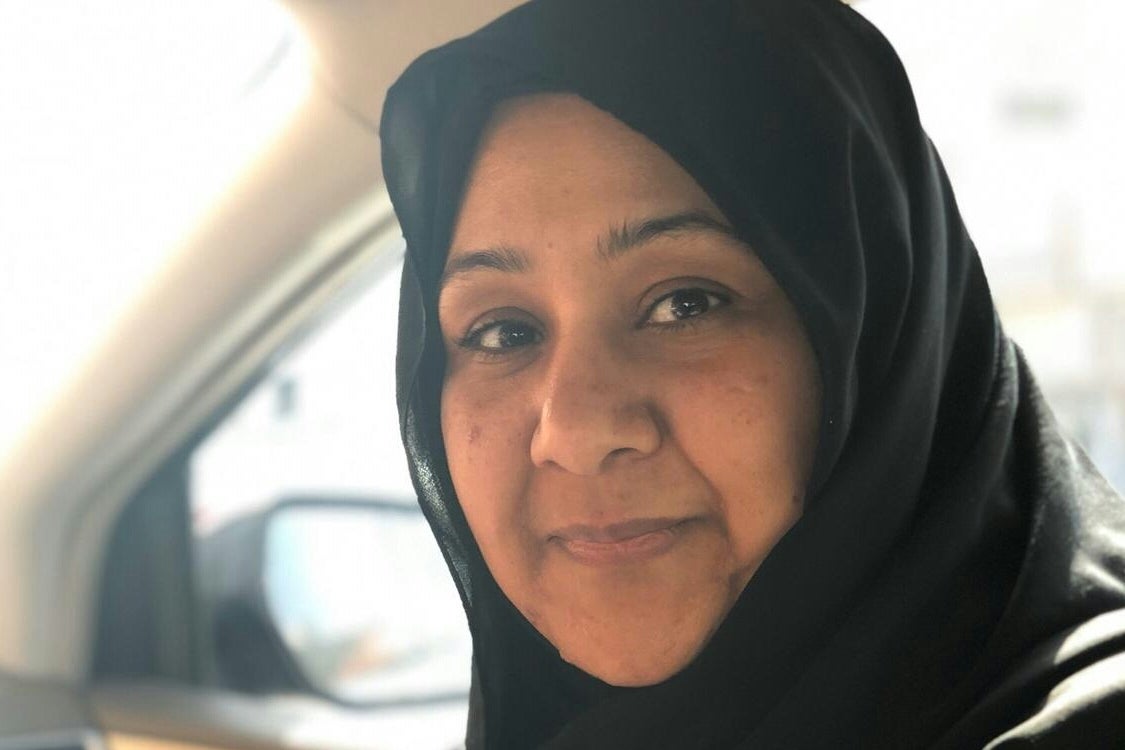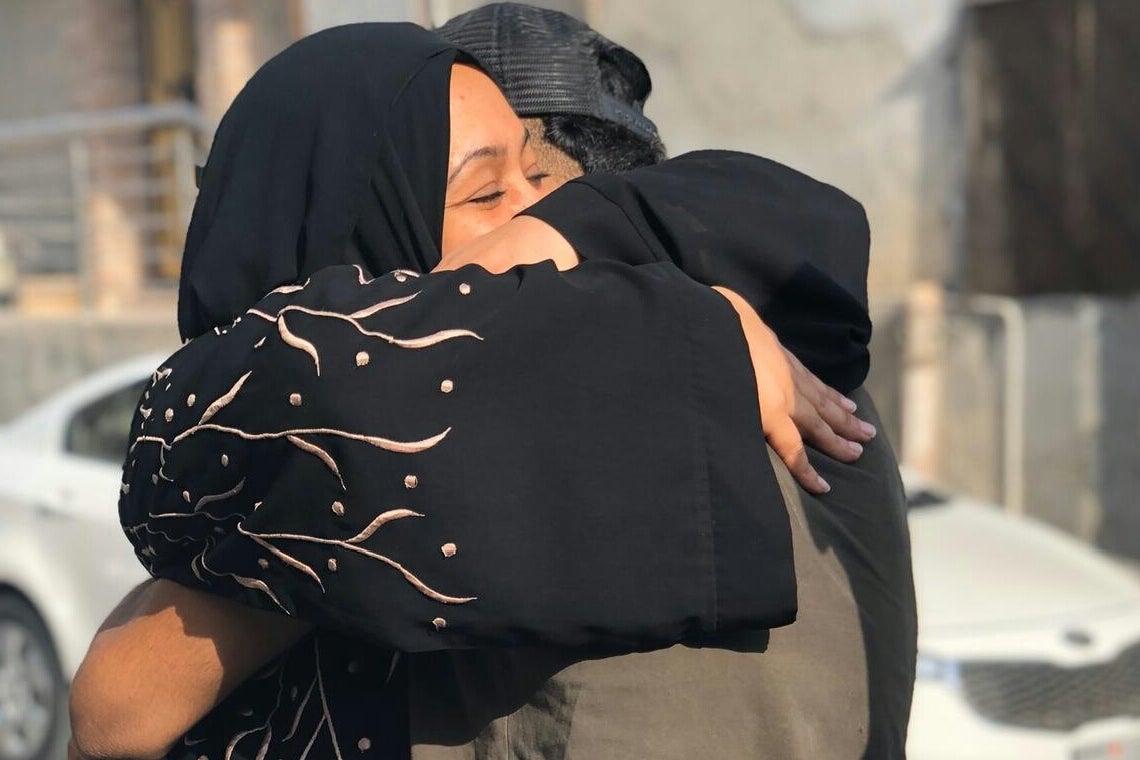UK government using taxpayer money to fund Bahraini body accused of covering up torture and rape
Exclusive: UK government’s ‘secretive’ multi-million-pound support for Gulf countries includes funding for controversial body, writes Maya Oppenheim


The UK government has been using British taxpayers’ money to fund a Bahraini government institution accused of “whitewashing” the torture and rape of women’s rights activists, The Independent can reveal.
Freedom of information requests show the British government’s “secretive” multi-million-pound support for nations in the Gulf region includes funding for a highly controversial body alleged to have covered up evidence of the rape and torture of two female activists in 2017.
Najah Yusuf and Ebtisam Al-Saegh, the two campaigners who allege they were sexually assaulted by the Bahraini authorities, have now hit out at the UK government for funding the human rights investigatory institution in Bahrain, known as the National Intelligence Agency Ombudsman.
Ms Yusuf, a former civil servant who was fired over her jail sentence, was imprisoned in April 2017 after condemning the Bahrain Grand Prix and human rights abuses in the wealthy Gulf state on Facebook.
Speaking to The Independent in the wake of the new findings, Ms Yusuf, who alleges she has suffered rape, harassment and abuse in prison, said: “No words can describe the ordeal I suffered at the hands of Bahrain’s security forces, and I am sickened to learn that the UK has trained the very body that covered up the abuses I suffered.
“To hear government officials like Foreign Office minister Lord Ahmad of Wimbledon, who is the UK’s human rights minister and special representative on preventing sexual violence in conflict, wax lyrical about fighting sexual violence against women while supporting the abusers is rank hypocrisy, and they should be deeply ashamed.”
The UK government funds the ombudsman via the Gulf Strategy Fund, which supplied £8.4m to five Gulf countries in 2021. While ministers say the fund bolsters the relationship between the UK and Gulf countries and boosts trade relations, campaigners warn a chunk of the pot of money is being used to train up officials at the National Intelligence Agency Ombudsman.
Ebtisam Al-Saegh, a leading women’s rights defender, added: “In the summer of 2019, I personally recounted the hideous abuses I suffered to senior UK Foreign Office officials, making this revelation all the more devastating.
“To learn that the UK government is supporting the National Intelligence Agency Ombudsman after I explicitly demonstrated [the ombudsman’s] complicity in my abuse is a devastating betrayal.”
Ms Al-Saegh, who is often described as the “voice of political prisoners in Bahrain”, says she was physically and sexually abused and endured threats to murder her and her children when she was detained at the National Security Agency building in Bahrain in May 2017.
The campaigner, who has the backing of Amnesty International, says she suffered torture for around seven hours, previously telling the leading human rights organisation: “They beat me on my nose and they kicked me in the stomach, knowing that I had undergone surgery on my nose and that I was suffering from my colon. I fainted twice and was woken up with cold water thrown on me.”
Both Ms Yusuf and Ms Al-Saegh filed complaints with the National Intelligence Agency Ombudsman alleging they were tortured and sexually abused by officers from Bahrain’s National Security Agency, which is now called the National Intelligence Agency, at a police station in Bahrain known as Muharraq Security Complex, from April to May 2017.
Sayed Ahmed Alwadaei, director of the Bahrain Institute for Rights and Democracy (BIRD), told The Independent that the National Intelligence Agency Ombudsman had “offered nothing but a whitewash false investigation” after the two activists had come forward with their allegations.
The Bahraini government denies the allegations of mistreatment Ms Yusuf and Ms Al-Saegh have levied against it.
Mr Alwadaei noted the UK government was still supporting the controversial human rights regulatory body in 2020/21.
He said: “Once again, the government has used taxpayer money to support bodies which have whitewashed shocking evidence of rape and torture by security forces.
“The UK government claims that their multi-million-pound support for Bahrain’s dictatorship is helping Bahrain reform; this is not helping, it is empowering abusers and bolstering a terrifying culture of impunity in the country. This funding must end immediately.
“This toxic relationship between the UK and Bahrain has a human cost. Those courageous female activists who suffered the most horrific abuses have stood up and exposed the corrupt relationship between these governments.”
Bahrain, which is one of the UK’s longest-standing allies in the Gulf, is “one of the Middle East’s most repressive states”, according to US non-governmental organisation Freedom House.
Mr Alwadaei said it was horrific that the UK government was “enabling” institutions that have covered up torture and abuse, adding that it was a “textbook example of hypocrisy” given UK politicians claim to tackle human rights abuses around the world.
Last month, a cross-party parliamentary report into the Gulf Strategy Fund accused the British government of being “misleading” and “deceptive” about £53.4m handed to Gulf countries, partly via the Gulf Strategy Fund.
The UK government explicitly stated who the beneficiaries of the fund were up until 2016, but the list of its recipients is now shrouded in secrecy despite campaigners and MPs repeatedly asking for this information via freedom of information requests and parliamentary questions. MPs, including the father of the House of Commons, Sir Peter Bottomley, and SNP MP Brendan O’Hara, urged the government to stop the funding and to carry out an independent inquiry into the issue following the report.
The British government has consistently refused to condemn allegations of human rights violations in Bahrain – a nation that has been ruled by the Al Khalifa family for more than two centuries.
The UK has licensed £105m worth of arms to Bahrain since February 2011, at the start of the pro-democracy Arab spring uprising, according to Campaign Against Arms Trade.
Ms Yusuf, a mother of four whose treatment has been denounced by the United Nations, was pardoned and released from jail in August 2019.
After her release from prison, Ms Yusuf gave an exclusive interview to The Independent saying she had contemplated suicide after suffering rape and abuse at the hands of state authorities.
Ms Yusuf said she was called into the police station with her 14-year-old son, and a member of the Bahraini intelligence services forced her to unlock her mobile phone before interrogating her about her involvement in politics.

She said: “I was terrified for my own safety and that of my son. I was asked to work with the authorities as an informant but I refused. Their attitude totally changed then.
“They became very aggressive. Over the next four days, I slept at home but would go back to the Muharraq police station each day where officers beat me and threatened me with rape.
“They also threatened to kill me and told me they would kill my children. They said they would fabricate an accident which happened to the children but kill them, saying: ‘Everything will look normal. We can do this to you.’ While being interrogated in police custody, I was also raped. My dignity was destroyed.”
She said she had contemplated killing herself by hurling herself from a window in order to “end the suffering”.
Ms Yusuf added: “I was shocked the person who was the head of police station where I was sexually assaulted and tortured was the beneficiary of a British taxpayers’ scheme.”
A spokesperson for the Bahraini government said: “The government of Bahrain has a zero-tolerance policy towards mistreatment of any kind and has put in place internationally recognised human rights safeguards … the National Institute for Human Rights – created with the assistance of the UN Office of the High Commissioner for Human Rights – has independent oversight of promoting and protecting human rights within the Kingdom.”
This article was amended on 22 August 2021 to add the statement from the Bahraini government.
Join our commenting forum
Join thought-provoking conversations, follow other Independent readers and see their replies
Comments




Bookmark popover
Removed from bookmarks